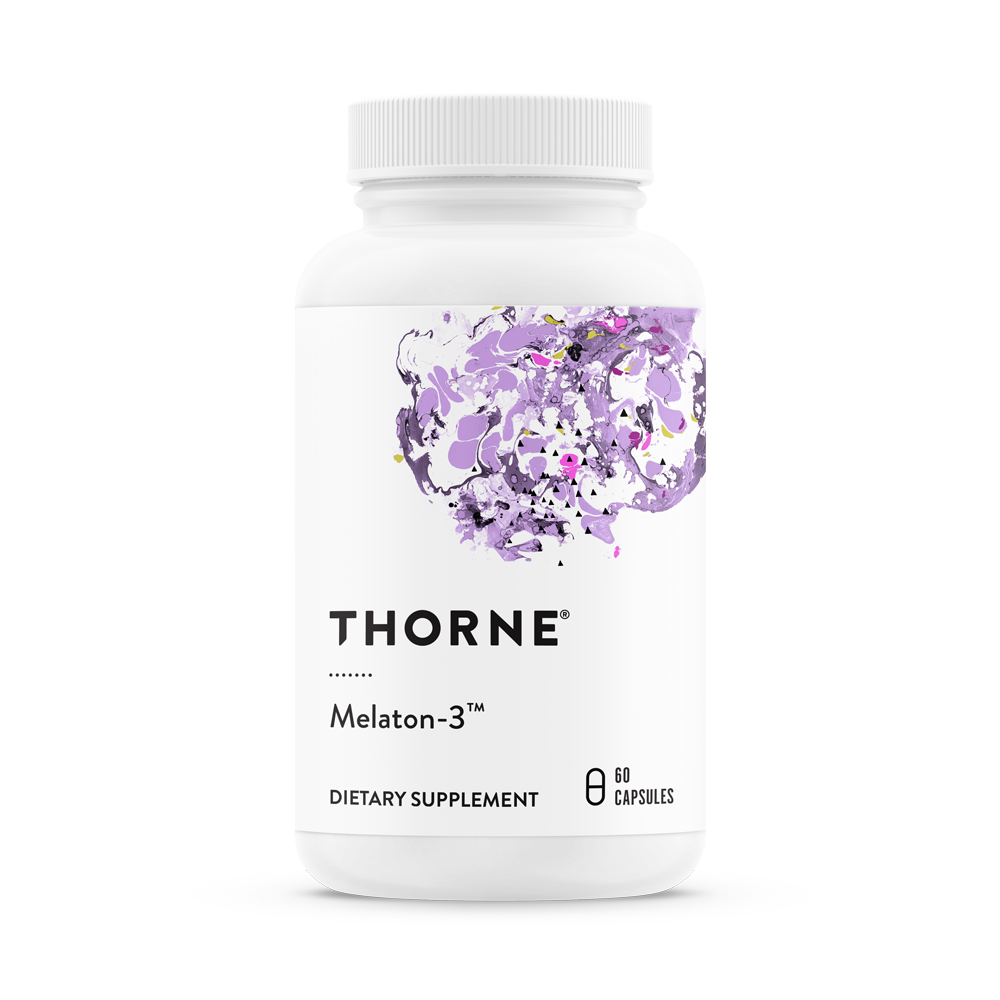
Use this link or click on the image above to get 10% off of melatonin 3mg from Thorne
Stand-out Benefits of Melatonin:
- Likely useful for the prevention and treatment of several cancers, such as breast cancer, prostate cancer, gastric cancer and colorectal cancer. (Higher doses likely work better for this. Note: I am NOT claiming melatonin cures cancer) (ref)(2)(3)(4)
- Improves time to fall asleep and increases the quality of sleep (lower doses tend to work best for sleep; at least start with a low dose before moving up) (ref)(2)
- Very good for reducing endometriosis symptoms and promoting reduction in size of abnormal endometrial tissue (see article here)
- Reduces symptoms of menopause and may even reverse the start of menopause if started early (ref)
- Melatonin levels decrease (especially at nighttime) with age, particularly during the peri-menopausal period
- Studies have shown that women aged 43-49 yr taking melatonin have a restoration of their pituitary functions back to juvenile (premenopausal) patterns of regulation, including increases in thyroid hormones and reduction of depression. (ref1)(ref2)
- Can reduce high blood pressure in individuals with low nightly melatonin levels (these individuals to not get the usual drop in blood pressure during night time) (ref)
- Likely helps reduce abdominal pain and quality of life in those with Irritable Bowel Syndrome (IBS) (ref)
General Info
Melatonin is a hormone produced by the pineal gland. It has major anti-oxidant and anti-inflammatory activity, and levels decline with age. Menopause is characterized not only by rapidly declining levels of estrogen and progesterone, but also of melatonin, and melatonin seems to be very important for many aspects of menopause.
Melatonin plays a large role in many gynecological conditions, such as endometriosis, but may also play a role in PCOS and recurrent spontaneous abortion.
Melatonin is safe to take on a daily basis at night time and there is no dependency. The dose you will want to take depends on why you want to take it. For sleep, doses of 0.3 – 3 mg tend to work well. Higher doses like 10 – 20 mg might actually impair sleep if the person has not gradually gotten used to the dose. Higher doses increase the risk of morning grogginess. Taking melatonin does not cause your body to produce less – this is a common myth.
Melatonin is also steadily gaining support as an add-on treatment for various cancers, especially hormonal-based cancers such as breast, prostate, and endometrial cancer. However, melatonin seems to influence most, if not all, cancers studied.